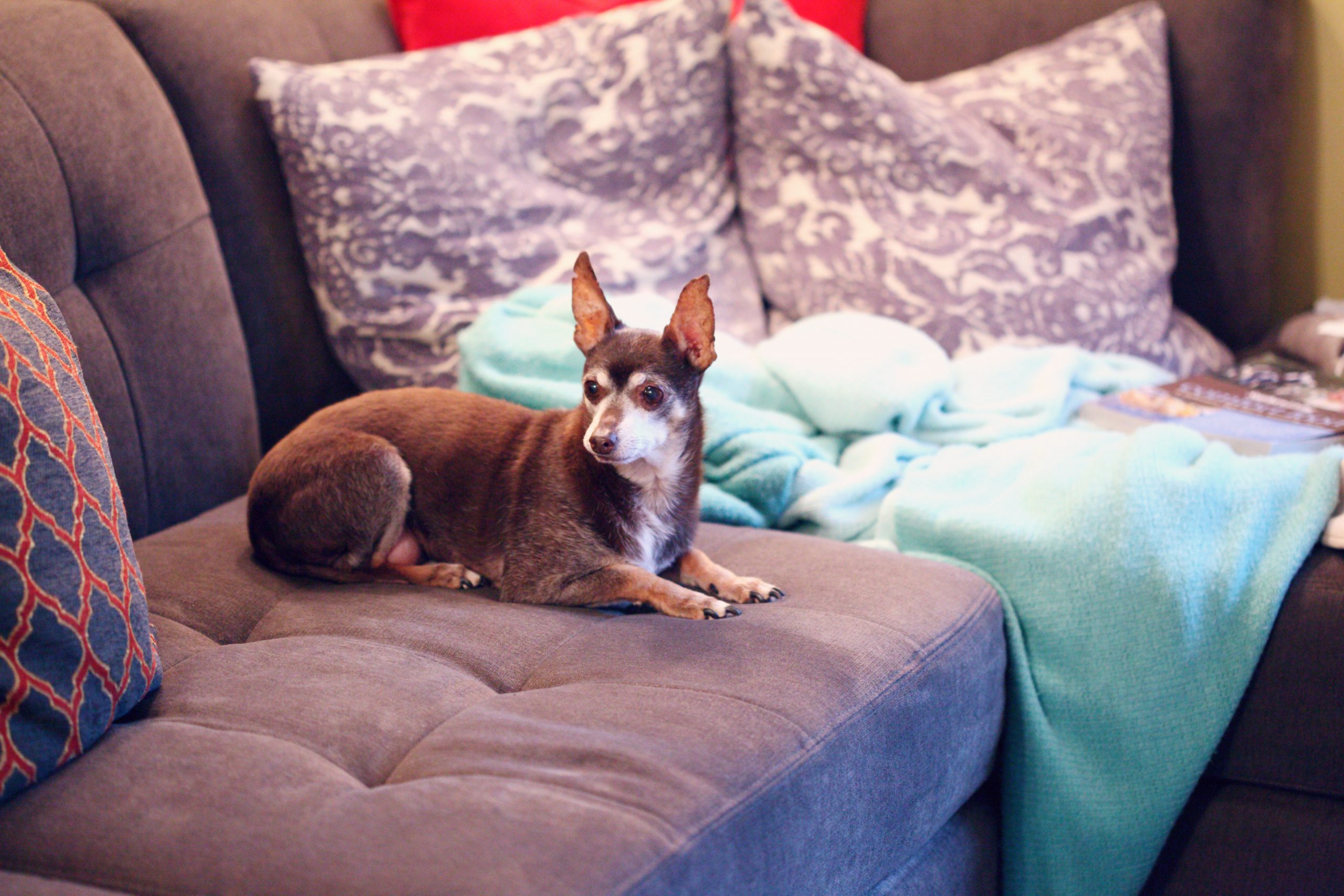As pet parents, we want our dogs to live happy, stress-free lives, especially since they bring so much joy to ours. But most pet parents will have experienced times when our dogs become anxious. Dependent on how your dog’s stress manifests, this can cause us stress too.
So how can we help to calm a dog down? Dogs live in the moment, so they navigate life’s daily stresses differently to us humans. As pet parents, we know our dogs inside out and usually know what it is that makes them feel anxious. But you’re not alone if you occasionally feel lost when it comes to knowing what’s best for your anxious pet, and there are lots of different and effective ways to help calm a dog down.
Exercise
When dogs experience stress or anxiety, increasing their exercise levels can have a hugely positive impact. Just as exercise is recognized to help us humans manage stress, the same goes for our four-legged friends. Additional exercise will help your pet burn off that nervous energy, distract them from the cause of stress and also feel comforted by your presence.
Exercise is known to be a great way to support dogs with separation anxiety, so spending some quality time together every day out in the park will help your pet to overcome their worries about being apart from you.
Time-Out

A time-out might sound like something you do with your toddler when they need a break, but it actually works effectively for dogs too! Certain situations might be stressful or overwhelming for your pet, such as having a lot of visitors in your home, or environments where there are lots of dogs around. It’s easy for your dog to become anxious and start acting up. Removing them from the source of stress for a short while will give them a chance to recover, reset, and calm down.
During a time-out you might put your dog in a crate with a comfy bed and some toys, or in another part of the house where they feel safe and comfortable, or even just put them on a leash and walk further away from other dogs.
Physical Contact
Our pets look to us for support when they feel anxious, and are easily comforted by our soothing touch. One study found that stroking your dog can decrease their heart rate, and that petting is actually preferred by most dogs compared to vocal praise.
However, it’s important to also recognize that excessive petting can cause your pet more stress – dogs don’t like to feel restricted, so hugging or holding onto your dog for too long might make them feel anxious. All dogs are different, and their emotional needs vary, so it’s important to understand your individual pet’s needs.
Music Therapy
It’s widely known that music has calming effects on people, but you might not know that it has the same effect on dogs!
In one study looking at the effects of playing classical music to dogs in a rehoming center, it was found that when the music was played dogs spent more time sitting/laying down and less time pacing or vocalizing.
Dogs most often feel anxious when we leave them at home alone, even just for a short time. This anxiety often leads to destructive behaviors or excessive barking. So next time you head out without your pet, try leaving some classical music on in the background for them!
Identify And Reduce the Source of Stress
The most important aspect of reducing your pet’s stress levels is through recognizing and understanding what makes your dog feel anxious in the first place. As your pet grows up you will get to know his loves, hates, and fears, and you’ll be able to recognize when he’s stressed or anxious.
Stressors can include being left alone for long periods of time, other dogs or people, loud noises, or car journeys. But there can be many other aspects of a dog’s environment that might make them feel anxious.
Working with a qualified behaviorist can help you to identify what might be causing your dog’s anxiety, and work with you to manage it. Simply avoiding stressors such as other dogs in the park, or busy roads can make a big difference for your dog. While you find techniques to help them relax and calm down, distractions, exercise, or supplements will help to minimize stress-induced behavior.
Supplements and Medication

Taking a multimodal approach to helping your dog to relax is key, as there is often no single solution to solving their stress problems. A combination of techniques is often best, and supplements can be a great addition to other training methods.
There are a whole host of products on the market designed to help dogs relax and calm down, ranging from nutraceuticals to room sprays and plug-in adaptors. These can be particularly beneficial to use during a period of anticipated stress – such as having a lot of guests over, moving house, or leaving your dog home alone. Various studies support the use of dog-appeasing pheromones and nutraceuticals in anxious dogs.
It’s important to remember that these products should always be used in combination with other behavior and training techniques, and you should seek advice from your veterinarian on which products to use.
FAQs
What are the signs of anxiety in dogs?
Dogs show anxiety in many different ways, but signs can include drooling, urinating, or defecating in the house, panting, excessive barking, aggression, pacing, restlessness, and repetitive, compulsive, or destructive behaviors.
How do you calm an anxious dog?
There are many ways to help calm an anxious dog including providing additional exercise, physical contact, toys, or games. You can also use classical music, supplements, and time-outs to help calm your dog. You should speak to a qualified behaviorist or your veterinarian for advice if your dog is struggling with anxiety.
What can I give my dog to help with anxiety?
There is a wide range of supplements, sprays, and plug-in adaptors that can be used to help your dog with anxiety. It is best to speak to your veterinarian to discuss what might be best for your individual pet. You can also give your dog toys and games, or additional exercise to reduce anxiety.
Conclusion
There are lots of ways to help calm an anxious dog, from distracting them with games and exercise to providing herbal supplements. However, getting to the bottom of what makes your dog anxious, and trying to remedy it, is key – talk to a veterinarian or behaviorist for help.


